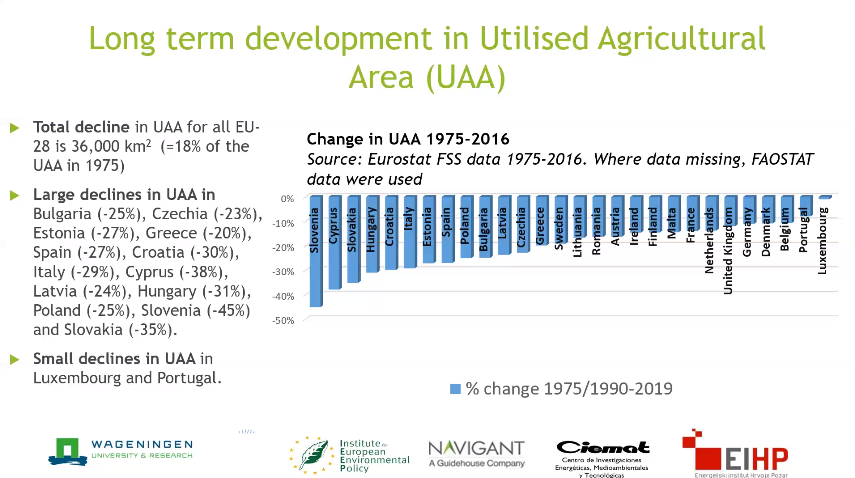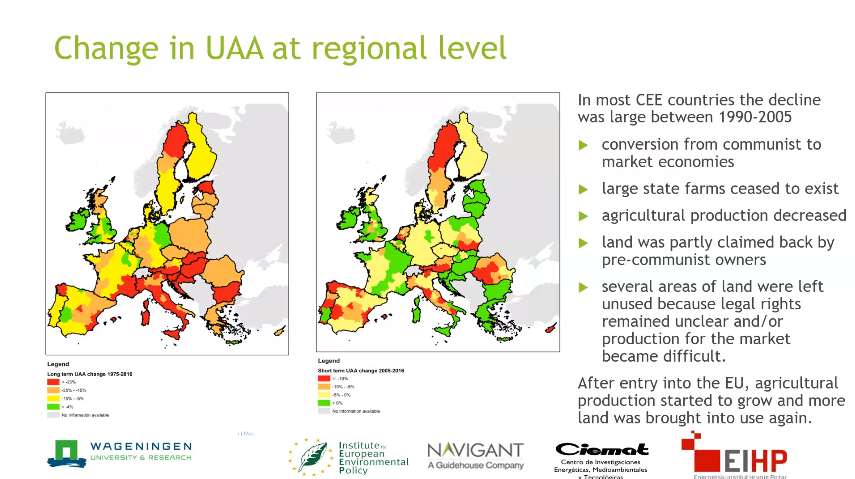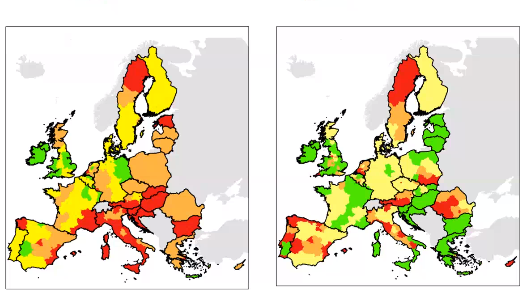On the 19th of November, the Wageningen University and Research (partner of the BIKE project) organised an online webinar named “Land for biomass, energy and other non-food services in the EU” together with the Institute of European Environmental Policy (IEEP) and the company Navigant.
The workshop presented the results of the recent study prepared for the European Commission’s DG Energy “Analysis of actual land availability in the EU, trends in unused, abandoned and degraded agricultural land and use for energy and other non-food crops”, and focussed on topics of great importance for BIKE and its upcoming activities, such as where in Europe non-food crops could be grown, how much abandoned or degraded land is available in EU and to what extent this land could suitable to grow non-food crops in practice.
Among the major takeaways from the study we recall that:
- Utilised Agricultural Area (UAA) in Europe has remained overall stable since 2005 while it has decreased by 18% since 1975. These trends vary significantly among Member States, with the largest declines occurring in Bulgaria, Czechia, Estonia,Greece, Spain, Croatia, Italy, Cyprus, Latvia, Hungary, Poland, Slovenia and Slovakia
- Deficiencies in data availability make it complicated to detect unused and abandoned land across Europe.
- The main reasons behind land abandonment are due socio-economic aspects such as lack of market demand and the aging population.
- The Common Agricultural Policy has helped tackling the phenomenon of land abandonment, for instance by providing investments for the installation of new young farmers. However, these policies have not been sufficient to reverse the trend.
- Future CAP measures should be tailored to solve the problem of land abandonment, together with a better management of data relative to the use of land.
- There is considerable interest in agroforestry systems as a source of biomass for non-food purposes, particularly since it has the potential to deliver multiple ecosystem services.
- Bioenergy crop production on non-agricultural land often requires cooperation between several industries or sectors, policies enhancing sector collaboration would be welcome.
You can access the full study at this link
A final takeaway arising from the webinar discussion, which is also one of the pillar concepts of BIKE, is that bioenergy production is a cross cutting topic which can have multiple positive impacts on local economies, society, environmental resilience, and land preservation.


Follow BIKE updates to learn more on this.


